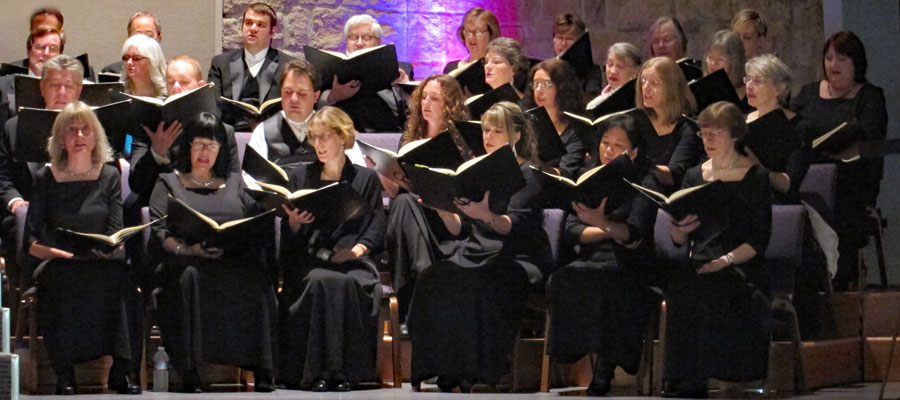I’ve been singing in choirs for years thanks to a fortunate twist of fate during college. I needed to satisfy an arts requirement during the general education portion of my journey, and a friend suggested I join the university choir to do so. By simply showing up for all the rehearsals and performances, I’d score an A in the class. Sold! I wound up loving it so much that I stayed on and joined the Chamber Choir, too.
Over the years, I’ve performed with a number of groups to the extent that my work schedule would allow it. I’ve sung with large ensembles that performed with the symphony as well as small auditioned groups that covered an eclectic mix of music. I’ve also sung with church choirs and taken turns at directing them when called upon to do so. I have absolutely loved making music with others. There are few things more joyful than situating myself amidst a sea of voices and lending my voice to the collective sound. And I’ve forged great friendships through choir; they’re my “peeps.” Our bond of music supersedes any differences we might have… something for which I am especially grateful in this polarizing time.
Beyond my personal witness, it turns out that singing in choirs is demonstrably good for you. According to a 2019 study entitled Singing for a Lifetime by Chorus America, 54 million Americans sing in choruses. Participants cited numerous benefits to singing in groups:
- It helps them feel connected to others and encourages socialization in other parts of their lives.
- They display above average optimism, mindfulness, and resilience.
- Three-quarters of the participants report being better team players, and 61% report being better listeners as a function of choral singing.
- Sixty percent of choral singers credit choir for making them more open, flexible, and adaptable in life.
- Singers are much more involved in their communities than members of the public at large. Moreover, they tend to serve in leadership positions across a wide range of need.
- Older choir members report better quality of life and better overall health than the general public. And being in a choir makes them feel less lonely.
The Centre for Performing Science took these findings a step further in its Sing With Us project. A pilot study with 193 participants demonstrated that a single choral rehearsal reduces stress hormones and increases cytokines, proteins responsible for mounting an immune response. Regular participation also decreased anxiety and improved self-efficacy and self-esteem.
Unfortunately, COVID-19 disrupted all of these wondrous benefits. The Skagit Valley Chorale in Washington State made the national news when one 61-person rehearsal resulted in 53 cases and 2 deaths. It’s not surprising. Singers expel a lot of aerosolized particles when producing sound. Masking quells transmission by degree, but it engenders a far less pleasant experience for the singer. Fortunately, with widespread availability of vaccines, reduced case rates, and sensible operational protocols (i.e., stay home if sick!), most choirs are back to business as usual.
COVID has made me a little bit anxious about singing in community, but I get so much out of being in a chorale that I’m willing to take the risk. Singing is simply too good for body, mind, and soul.
